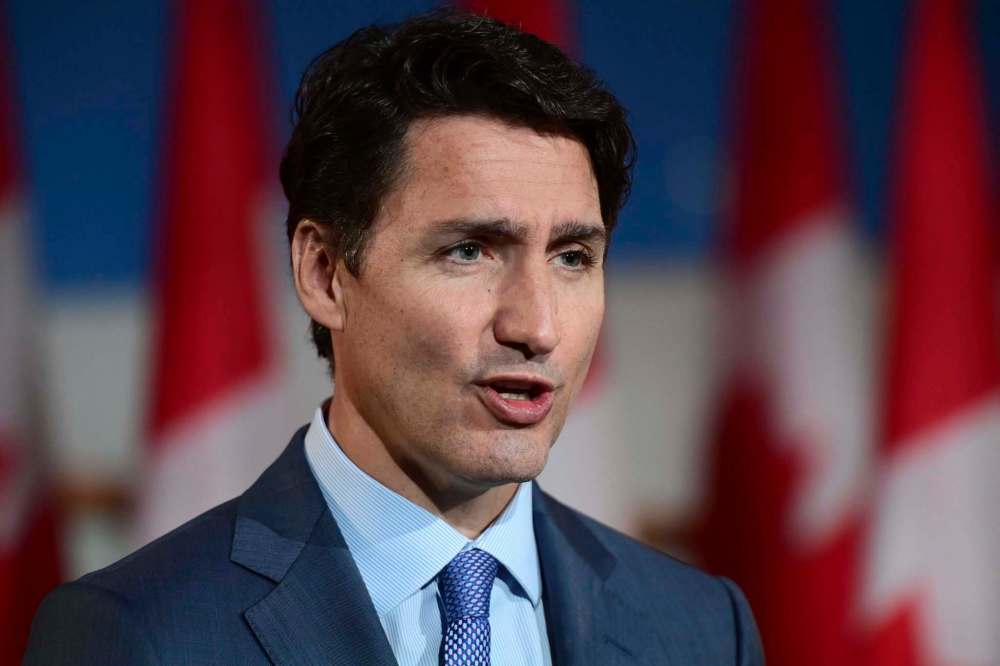Much work remains for multicultural Canada
Advertisement
Read this article for free:
or
Already have an account? Log in here »
To continue reading, please subscribe:
Monthly Digital Subscription
$0 for the first 4 weeks*
- Enjoy unlimited reading on winnipegfreepress.com
- Read the E-Edition, our digital replica newspaper
- Access News Break, our award-winning app
- Play interactive puzzles
*No charge for 4 weeks then price increases to the regular rate of $19.00 plus GST every four weeks. Offer available to new and qualified returning subscribers only. Cancel any time.
Monthly Digital Subscription
$4.75/week*
- Enjoy unlimited reading on winnipegfreepress.com
- Read the E-Edition, our digital replica newspaper
- Access News Break, our award-winning app
- Play interactive puzzles
*Billed as $19 plus GST every four weeks. Cancel any time.
To continue reading, please subscribe:
Add Free Press access to your Brandon Sun subscription for only an additional
$1 for the first 4 weeks*
*Your next subscription payment will increase by $1.00 and you will be charged $16.99 plus GST for four weeks. After four weeks, your payment will increase to $23.99 plus GST every four weeks.
Read unlimited articles for free today:
or
Already have an account? Log in here »
Hey there, time traveller!
This article was published 12/07/2021 (1595 days ago), so information in it may no longer be current.
Fiftieth anniversaries are traditionally joyous occasions, a time to pop champagne corks and look back on five decades of warm memories.
For Canadians, however, this year’s “golden anniversary” of official multiculturalism has become a time for sombre deliberation and reflection, not celebration. The landmark moment comes as Canadians have been forced into a national reckoning over the country’s racist history and a realization that the sins of the past threaten to derail a 50-year-old dream of a brighter future.
Fifty years ago this fall, Canada took a bold step, becoming the first country in the world to adopt multiculturalism as an official policy. In a statement to the House of Commons on Oct. 8, 1971, prime minister Pierre Trudeau announced multiculturalism wasn’t just some vague ideal, but an official government policy.

Mr. Trudeau stated that no single culture could define Canada, and that the government accepted “the contention of other cultural communities that they, too, are essential elements in Canada.”
The forward-thinking initiative was partly driven by partisan politics, a bid to broaden the Liberal party’s appeal with ethnic voters at a time when its support in Quebec was being challenged by the rise of separatism.
It was more a symbolic recognition of diversity than a substantive change in government policy, but it still held out a lofty vision of a Canada in which all cultures would be valued equally. It helped differentiate Canada, a self-styled mosaic in which cultural identities are embraced and encouraged, from the U.S., a giant melting pot where individual cultures must surrender to the American ideal.
Since that vision was unveiled, however, events have made it painfully clear the gulf between aspiration and execution, between golden dream and grisly reality, might now be wider than ever.
The journey toward multiculturalism has been fraught with more peril than anyone could have imagined in 1971, particularly in light of the recent discoveries of the remains of more than a thousand people, many of them Indigenous children, in unmarked graves at former residential schools.
It is easy to become discouraged when headlines regularly remind Canadians they live in a country where sometimes-deadly incidents of anti-Asian and anti-Muslim hate are allowed to flourish, and anti-multicultural groups such as the white-nationalist Proud Boys are able to insinuate themselves into the public conversation.
On June 27, Canadian Multiculturalism Day, Prime Minister Justin Trudeau issued a statement acknowledging that Canada in 2021 has fallen far short of his father’s long-ago vision of a more inclusive and equitable society.
“Every day, far too many racialized Canadians, Indigenous peoples and religious minorities continue to face systemic racism, discrimination and a lack of resources and opportunity,” he said.
“The tragic events of the past several weeks are painful reminders that Canada has not always lived up to its ideals, and that many Canadians continue to feel fear and insecurity simply because of the colour of their skin, their background or their faith.”
Canadians can be forgiven if they feel there is little to celebrate on the 50th anniversary of Canada’s declaration of official multiculturalism. Still, the ideal championed half a century ago should not be allowed to wither and die simply because there is much work yet to be done in all corners of Canada’s fragile cultural mosaic.
Deliberation must not devolve into despair. While the ugliness of recent revelations is proof of how hard the journey will be, there is inspiration to be found in the fact we know what is possible if we commit to the difficult task that lies ahead.



